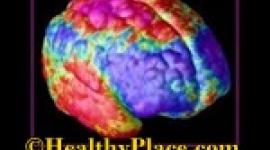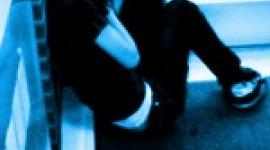Diagnostic Criteria for Manic Depression and Schizophrenia
Diagnostic criteria for Manic Depression and Schizophrenia. Detailed list of symptoms for both Bipolar Disorder and Schizophrenia.

(2) Criteria for Manic Episode
- A distinct period of abnormally and persistently elevated, expansive, or irritable mood, lasting at least 1 week (or any duration if hospitalization is necessary).
- During the period of mood disturbance, three (or more) of the following symptoms have persisted (four if the mood is only irritable) and have been present to a significant degree:
- inflated self-esteem or grandiosity
- decreased need for sleep (e.g., feels rested after only 3 hours of sleep)
- more talkative than usual or pressure to keep talking
- flight of ideas or subjective experience that thoughts are racing
- distractibility (i.e., attention too easily drawn to unimportant or irrelevant external stimuli)
- increase in goal-directed activity (either socially, at work or school, or sexually) or psychomotor agitation
- excessive involvement in pleasurable activities that have a high potential for painful consequences (e.g., engaging in unrestrained buying sprees, sexual indiscretions, or foolish business investments)
- The symptoms do not meet criteria for a Mixed Episode
- The mood disturbance is sufficiently severe to cause marked impairment in occupational functioning or in usual social activities or relationships with others, or to necessitate hospitalization to prevent harm to self or others, or there are psychotic features.
- The symptoms are not due to the direct physiological effects of a substance (e.g., a drug of abuse, a medication, or other treatment) or a general medical condition (e.g., hyperthyroidism).
(3) Criteria for Mixed Episode
- The criteria are met both for a Manic Episode and for a Major Depressive Episode (except for duration) nearly every day during at least a 1-week period.
- The mood disturbance is sufficiently severe to cause marked impairment in occupational functioning or in usual social activities or relationships with others, or to necessitate hospitalization to prevent harm to self or others, or there are psychotic features.
- The symptoms are not due to the direct physiological effects of a substance (e.g., a drug of abuse, a medication, or other treatment) or a general medical condition (e.g., hyperthyroidism).
(4) Criterion A of Schizophrenia
- Two (or more) of the following, each present for a significant portion of time during a 1-month period (or less if successfully treated):
- delusions
- hallucinations
- disorganized speech (e.g., frequent derailment or incoherence)
- grossly disorganized or catatonic behavior
- negative symptoms, i.e., affective flattening, alogia, or avolition
- Only one symptom is required if delusions are bizarre or hallucinations consist of a voice keeping up a running commentary on the person's behavior or thoughts, or two or more voices conversing with each other.
- During the same period of illness, there have been delusions or hallucinations for at least 2 weeks in the absence of prominent mood symptoms.
- Symptoms that meet criteria for a mood episode are present for a substantial portion of the total duration of the active and residual periods of the illness.
- The disturbance is not due to the direct physiological effects of a substance (e.g., a drug of abuse, a medication) or a general medical condition.
next: Causes of Schizoaffective Disorder
~ back to articles on the schizophrenia library
~ all articles on schizophrenia
~ all articles on schizoaffective disorder
~ thought disorders homepage
APA Reference
Gluck, S.
(2007, March 2). Diagnostic Criteria for Manic Depression and Schizophrenia, HealthyPlace. Retrieved
on 2026, March 4 from https://www.healthyplace.com/thought-disorders/schizophrenia-articles/diagnostic-criteria-for-manic-depression-and-schizophrenia



